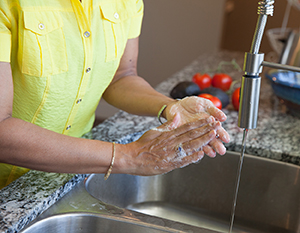Giardiasis is an intestinal infection caused by the parasite Giardia. You are most likely to be exposed to Giardia from contaminated water during a camping trip, international travel, or from drinking well-water. You may also become infected by eating contaminated undercooked food. Exposure to the stool of someone who`s infected can also cause infection. A distinctive and classic symptom of Giardia is eruptions (or burps) that smell like sulfur.
When to call your doctor
Call your health care provider if you have:
-
Diarrhea, which often comes and goes.
-
Stomach bloating or fullness.
-
Upset stomach (nausea) or vomiting.
-
Unplanned weight loss.
-
Blood in your stool.
-
Dehydration.
When to call 911
Call 911 if you have:
-
Uncontrolled vomiting.
-
Severe belly pain.
How is giardiasis treated?
You will be examined and will likely have a stool sample checked in a lab. This stool is checked for the parasite that causes the disease. If giardiasis is suspected or confirmed, you will be prescribed an antibiotic that you take for 5 to 7 days. In many cases, this clears the infection.
Preventing giardiasis
Take these steps to help prevent infection with Giardia:
-
Wash your hands with clean, running water (warm or cold) after using the bathroom and before eating. Wash for at least 20 seconds. Alcohol-based hand sanitizers may not work against Giardia.
-
Wash your hands each time you change a child's diaper.
-
Don't drink from rivers and streams.
-
Use a water treatment kit when camping.
-
Wash or peel raw fruits and vegetables before using.


